
Lankaran-Astara Region: Azerbaijan's Coastal Gem
The Lankaran-Astara region in Azerbaijan is a captivating destination that seamlessly blends natural beauty and rich cultural heritage. Nestled along the southern coast of the Caspian Sea, this region offers visitors a unique combination of lush landscapes, historic sites, and vibrant local culture. One of the region’s highlights is the Hirkan National Park, a UNESCO World Heritage site known for its ancient forests and diverse wildlife. Nature lovers will be enchanted by the lush greenery and the opportunity to spot rare species such as the Persian leopard. The park is perfect for hiking, bird-watching, and simply enjoying the tranquility of nature. Lankaran city itself is steeped in history. Visitors can explore the Lankaran Fortress, which dates back to the 18th century, and the nearby Khanega complex. The region is also famous for its thermal springs, which are believed to have healing properties. Don’t miss the chance to relax in the hot springs of Istisu. Culinary enthusiasts will delight in the local cuisine, which features fresh seafood, aromatic herbs, and delicious tea. The region’s tea plantations are a must-visit, offering tours that showcase the tea-making process from leaf to cup. Be sure to try the local specialty, Lankaran tea, known for its rich flavor and aroma.
Local tips in Lankaran-Astara Region
- Visit Hirkan National Park for a chance to see rare wildlife and ancient forests.
- Explore the Lankaran Fortress and the Khanega complex to delve into the region's history.
- Relax in the healing thermal springs of Istisu.
- Take a tour of the local tea plantations and sample the renowned Lankaran tea.
- Try local seafood dishes at coastal restaurants for an authentic culinary experience.
Lankaran-Astara Region: Azerbaijan's Coastal Gem
The Lankaran-Astara region in Azerbaijan is a captivating destination that seamlessly blends natural beauty and rich cultural heritage. Nestled along the southern coast of the Caspian Sea, this region offers visitors a unique combination of lush landscapes, historic sites, and vibrant local culture. One of the region’s highlights is the Hirkan National Park, a UNESCO World Heritage site known for its ancient forests and diverse wildlife. Nature lovers will be enchanted by the lush greenery and the opportunity to spot rare species such as the Persian leopard. The park is perfect for hiking, bird-watching, and simply enjoying the tranquility of nature. Lankaran city itself is steeped in history. Visitors can explore the Lankaran Fortress, which dates back to the 18th century, and the nearby Khanega complex. The region is also famous for its thermal springs, which are believed to have healing properties. Don’t miss the chance to relax in the hot springs of Istisu. Culinary enthusiasts will delight in the local cuisine, which features fresh seafood, aromatic herbs, and delicious tea. The region’s tea plantations are a must-visit, offering tours that showcase the tea-making process from leaf to cup. Be sure to try the local specialty, Lankaran tea, known for its rich flavor and aroma.
When is the best time to go to Lankaran-Astara Region?
Unmissable attractions to see
Istisu springs
Discover Istisu's natural thermal springs in Azerbaijan: a serene escape for relaxation and rejuvenation with mineral-rich waters and scenic landscapes.
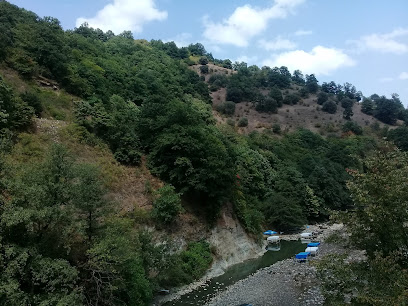
City Bazaar
Experience the heart of Lankaran! Discover local flavors, vibrant crafts, and the lively spirit of Azerbaijani culture at the City Bazaar.
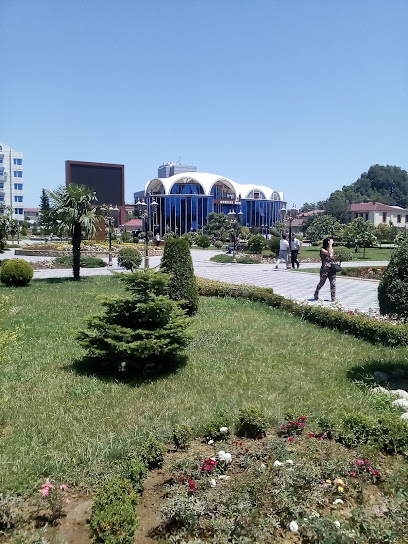
Astara boulevard
Experience the charm of Azerbaijan's Caspian coast at Astara Boulevard, a vibrant hub of recreation and relaxation for all ages.
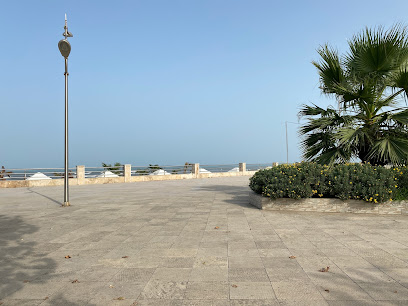
Limuland
Experience thrilling rides and family-friendly fun at Limuland Amusement Park in Astara, Azerbaijan!
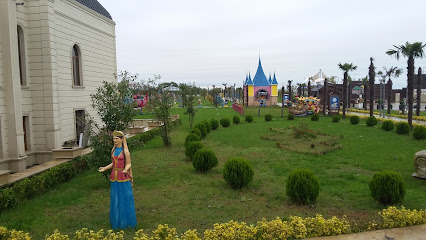
Hirkan park
Discover Hirkan Park in Lankaran: A serene escape into Azerbaijan's rich biodiversity and ancient forests, offering a tranquil nature retreat.
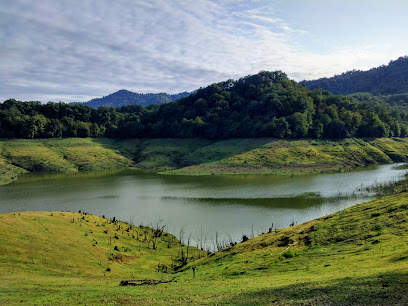
Lankaran region
Discover Lankaran: Azerbaijan's coastal gem where history, nature, and culture converge along the Caspian Sea, offering a unique travel experience.
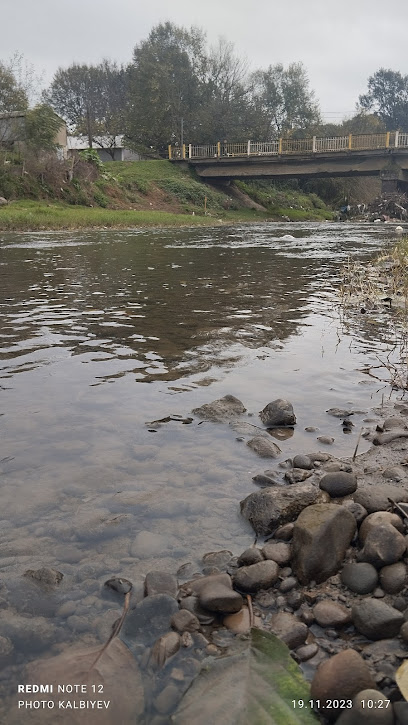
İstisu
Experience the healing waters and serene landscapes of İstisu, Lankaran's natural thermal spring retreat in Azerbaijan.

Alazapin
Discover Alazapin in Lankaran, Azerbaijan: A peaceful retreat blending nature, culture, and tranquility for an authentic travel experience.
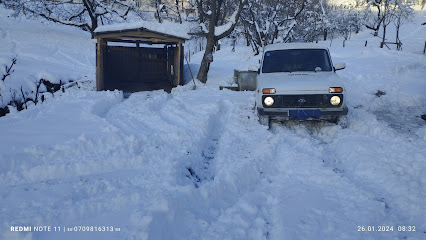
دژ زندان لنکران
Explore Lankaran Fortress: A historical landmark showcasing Azerbaijan's rich heritage and architectural blend of Persian, Russian, and Caucasian influences.

Samovar Statue (Lankaran City)
A monumental tribute to Lankaran's tea heritage, symbolizing Azerbaijani hospitality and the region's deep-rooted connection to tea culture.
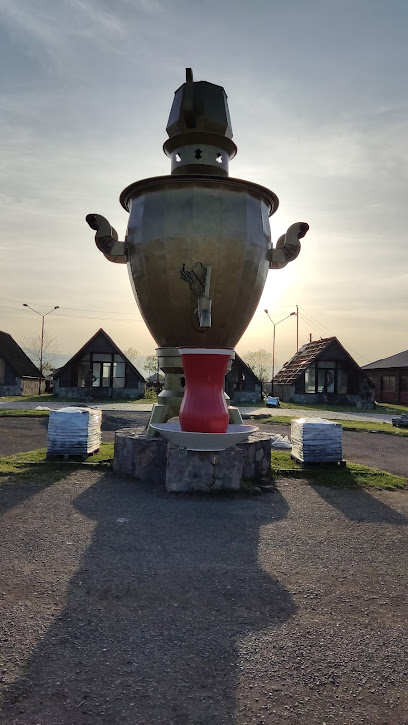
Lankaran State Drama Theater named after Najaf Bey Vazirov
Experience Azerbaijani culture at the Lankaran State Drama Theater, named after Najaf Bey Vazirov, offering diverse performances since 1973.
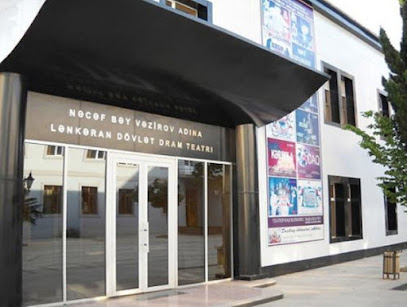
Şəlalə yolu
Discover Şəlalə Yolu in Astara: A scenic journey to breathtaking waterfalls amidst Azerbaijan's lush landscapes and serene nature.

KANKA
Discover KANKA in Astara: A peaceful tourist attraction with stunning views, perfect for relaxation and cultural immersion in Azerbaijan.

Essential places to dine
Lankaran Springs Wellness Resort
Discover tranquility at Lankaran Springs Wellness Resort - where luxury meets nature for your ultimate relaxation getaway.
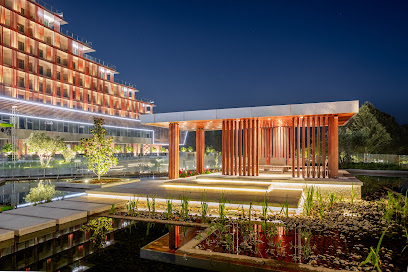
Boranı Restoran (Lənkəran Filialı)
Discover Boranı Restoran in Lənkəran: where family-friendly dining meets authentic Azerbaijani cuisine in a warm and welcoming atmosphere.
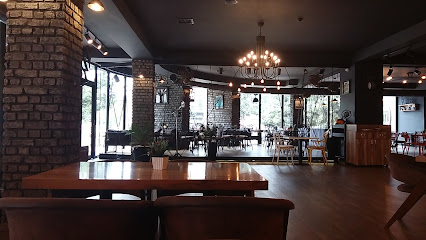
DAD house Lankaran
Experience authentic Azerbaijani cuisine at DAD House Lankaran - where tradition meets taste in every bite.
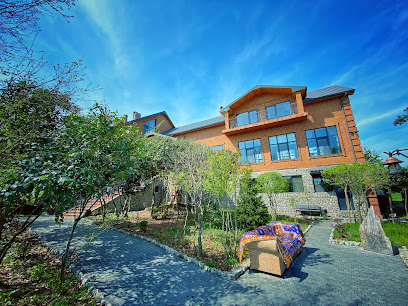
Luxe Lankaran Hotel
Experience luxury and comfort at Luxe Lankaran Hotel – your gateway to exploring Azerbaijan's stunning southern coast.

Khan Lankaran Hotel
Experience the warmth of Azerbaijani hospitality at Khan Lankaran Hotel - your gateway to exploring the breathtaking beauty of Lankaran.
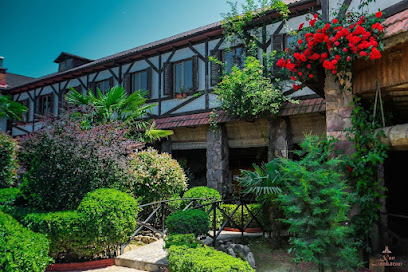
Gafgaz Sahil Hotel
Discover coastal serenity at Gafgaz Sahil Hotel in Lankaran - where comfort meets stunning sea views.

citrus astara
Experience authentic Vietnamese flavors at Citrus Astara, where every bowl of Pho tells a story.
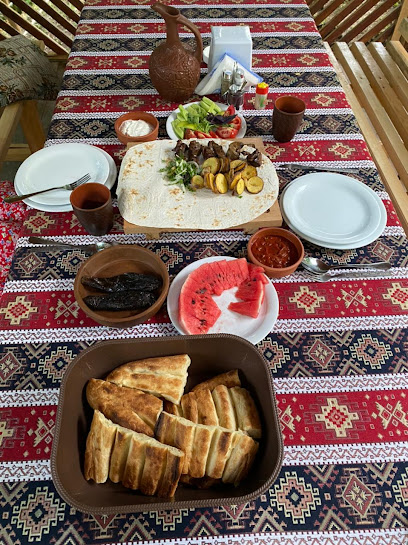
Lem Restoran
Experience authentic Azerbaijani cuisine at Lem Restoran in Astara – where every dish is crafted with passion and tradition.
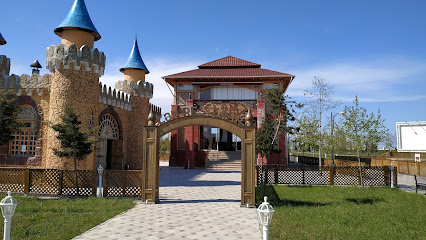
Deniz Hotel & Restaurant
Experience unparalleled comfort and authentic Azerbaijani cuisine at Deniz Hotel & Restaurant in Lankaran.
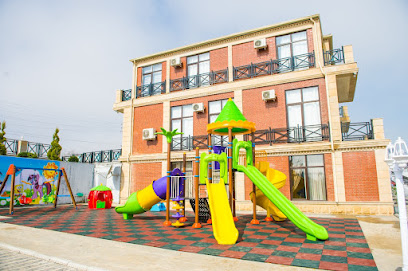
Hotel Mayak
Experience comfort and local charm at Hotel Mayak in Lənkəran, your perfect base for exploring Azerbaijan's coastal beauty.
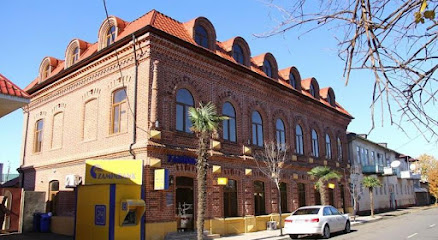
Terrace Lankaran
Discover authentic Azerbaijani flavors at Terrace Lankaran – where culinary tradition meets stunning views in a serene atmosphere.
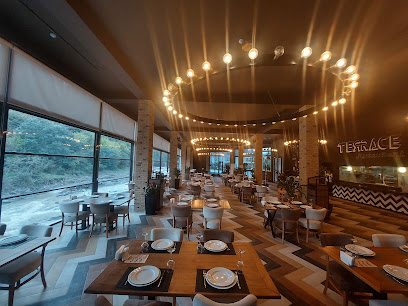
Dörd Fəsil Restoranı
Discover seasonal Azerbaijani cuisine at Dörd Fəsil Restoranı in Sütəmurdov - where every dish reflects the essence of nature's bounty.
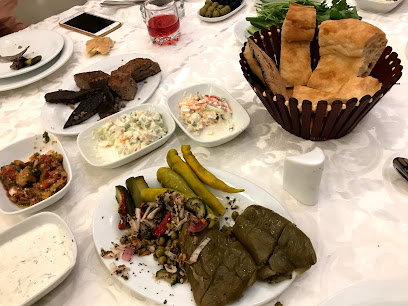
Restaurant Kaspi
Discover authentic Azerbaijani cuisine at Restaurant Kaspi in Astara - where every dish tells a story.
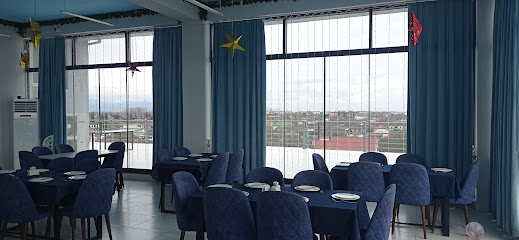
Lankon restaurant
Discover authentic Azerbaijani flavors at Lankon Restaurant in beautiful Lankaran, where every dish tells a story.
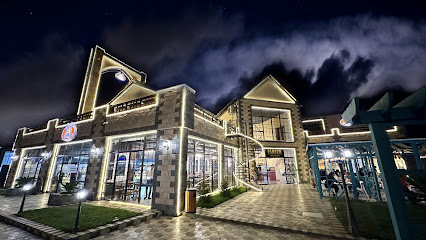
Real cay evi
Experience authentic Azerbaijani cuisine at Real Cay Evi in Lankaran—where tradition meets flavor in every bite.

Markets, malls and hidden boutiques
City Bazaar
Discover the vibrant City Bazaar in Lankaran, a marketplace filled with local flavors, crafts, and a lively atmosphere that embodies Azerbaijani culture.

Lənkəran Nemətləri
Experience the authentic tastes of Azerbaijan at Lənkəran Nemətləri, your gateway to fresh local produce and traditional delicacies.

ORGA Gift Shop
Explore ORGA Gift Shop in Lankaran for unique Azerbaijani gifts and handcrafted treasures that capture the essence of local culture.
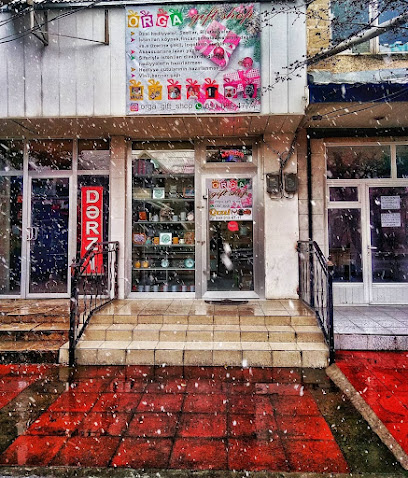
Ist Album Gallery
Explore Ist Album Gallery in Lankaran for unique scrapbooking supplies and creative inspiration in a vibrant artistic atmosphere.

Essential bars & hidden hideouts
MALACANNES - Shisha Lounge
Discover the vibrant MALACANNES - Shisha Lounge in Baku, a perfect blend of shisha, cocktails, and a lively atmosphere for every tourist.
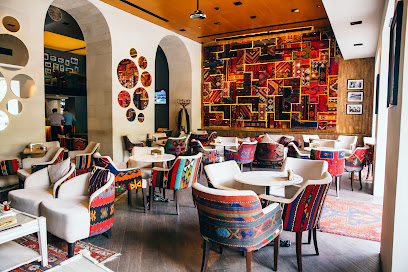
360 Bar, Hilton Baku
Discover Baku's skyline from 360 Bar at Hilton Baku, where stunning views, exquisite cocktails, and a vibrant atmosphere meet.
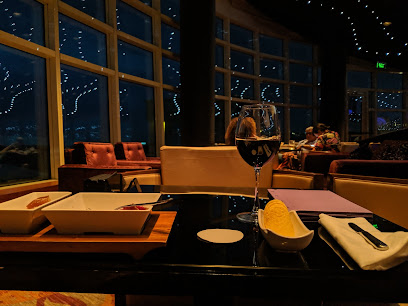
Lankaran Springs Wellness Resort
Experience tranquility and luxury at Lankaran Springs Wellness Resort, your perfect getaway in Azerbaijan's stunning landscapes.
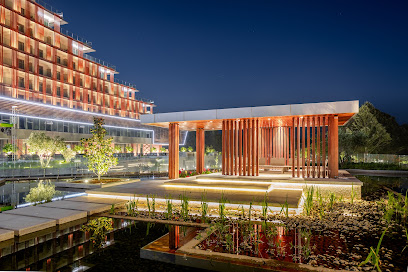
Boranı Restoran (Lənkəran Filialı)
Experience the authentic flavors of Azerbaijani cuisine at Boranı Restoran in Lənkəran, perfect for families and food lovers alike.
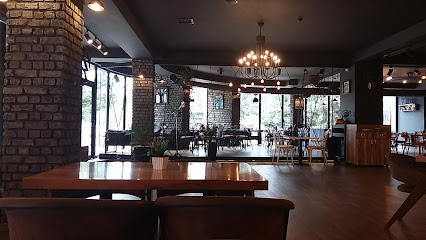
Barfly Social Hub
Experience Baku's nightlife at Barfly Social Hub, a cocktail bar where creativity and vibrant ambiance combine for an unforgettable night out.
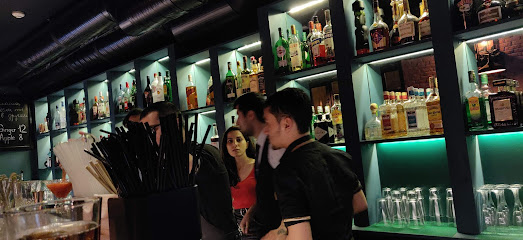
KEFLI Local Wine & Snacks
Experience the essence of Azerbaijan at KEFLI Local Wine & Snacks, offering exquisite wine selections and delightful local snacks in a cozy atmosphere.
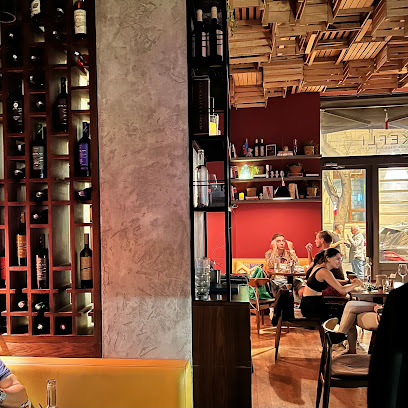
Pub William Shakespeare
Discover the vibrant atmosphere of Pub William Shakespeare, a charming bar in Baku offering an extensive drink menu and delightful snacks.
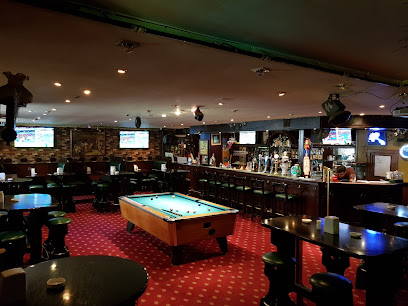
Pushkin Pub
Discover the vibrant nightlife of Baku at Pushkin Pub, where traditional flavors meet modern ambiance for an unforgettable experience.
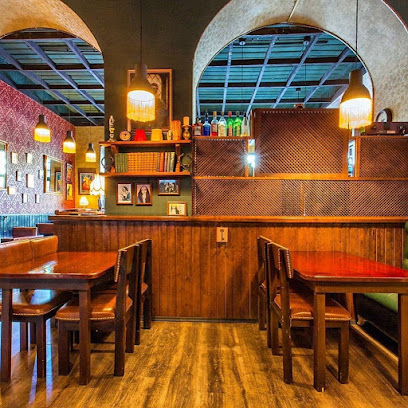
Khan Palace (Lankaran Museum of History and Ethnography)
Explore the rich cultural heritage of Lankaran at the Khan Palace Museum, featuring historical artifacts and ethnographic displays.
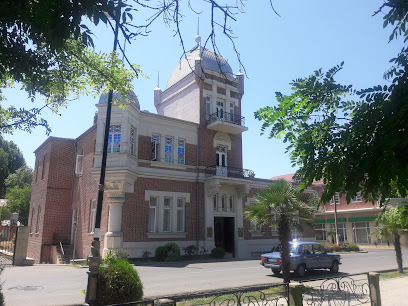
DAD house Lankaran
Experience the vibrant flavors of Azerbaijani cuisine at DAD House in Lankaran, where every meal is a celebration of local traditions.
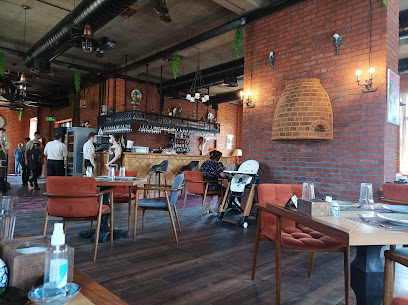
Luxe Lankaran Hotel
Experience the luxury and comfort of Luxe Lankaran Hotel, your perfect base for exploring the stunning landscapes and rich culture of Lankaran, Azerbaijan.

Khan Lankaran Hotel
Experience unparalleled comfort and local charm at Khan Lankaran Hotel, your perfect getaway in Azerbaijan's coastal paradise.
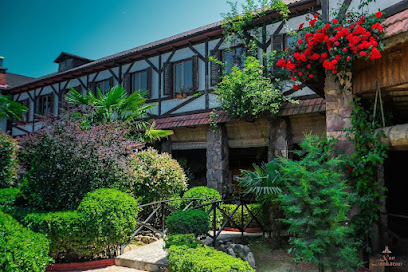
Astara boulevard
Experience the tranquil beauty of Astara Boulevard, a serene national park in Azerbaijan perfect for relaxation, exploration, and memorable moments.
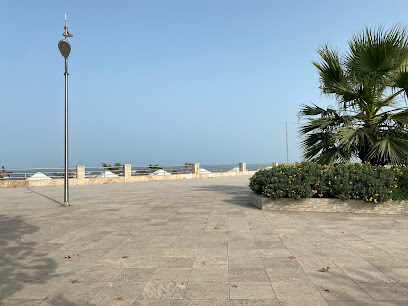
Palidli Sahil Hotel
Discover coastal tranquility at Palidli Sahil Hotel, where comfort meets the stunning shores of Lankaran in Azerbaijan.
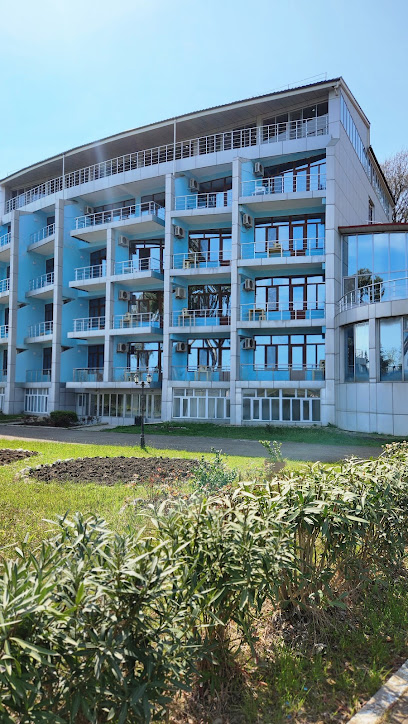
Local Phrases about Lankaran-Astara Region
-
- HelloSalam
[sah-lahm] - GoodbyeSag ol
[sahg awl] - YesBəli
[beh-lee] - NoXeyr
[khayr] - Please/You're welcomeXahiş edirəm
[khah-heesh ed-ee-rehm] - Thank youSağ olun
[sahg aw-loon] - Excuse me/SorryBağışlayın
[bah-gish-lah-yin] - How are you?Necəsən?
[neh-jeh-suhn] - Fine. And you?Yaxşıyam. Sən?
[yahkh-shuh-yahm. sahn] - Do you speak English?İngilis dilində danışırsınızmı?
[een-gee-lees dee-leen-deh dah-nuh-sihr-suhn-muh] - I don't understandAnlamıram
[ahn-lah-muh-rahm]
- HelloSalam
-
- I'd like to see the menu, pleaseXahiş edirəm menyunu görmək istəyirəm
[khah-heesh ed-ee-rehm mehn-yoo-noo gohr-mehk is-teh-yee-rehm] - I don't eat meatMən ət yemirəm
[muhn aht yeh-mee-rehm] - Cheers!Sağ ol
[sahg awl] - I would like to pay, pleaseÖdəmək istəyirəm, xahiş edirəm
[uh-deh-mehk is-teh-yee-rehm, khah-heesh ed-ee-rehm]
- I'd like to see the menu, pleaseXahiş edirəm menyunu görmək istəyirəm
-
- Help!Kömək edin!
[kuh-muhk ed-een] - Go away!Uzaq ol!
[oo-zahk awl] - Call the Police!Polisi çağırın!
[poh-lee-see chah-gee-ruhn] - Call a doctor!Həkim çağırın!
[heh-keem chah-gee-ruhn] - I'm lostİtmişəm
[eet-mee-shuhm] - I'm illXəstəyəm
[khuh-stuh-yuhm]
- Help!Kömək edin!
-
- I'd like to buy...Almaq istəyirəm...
[ahl-mahk is-teh-yee-rehm] - I'm just lookingSadəcə baxıram
[sah-deh-jeh bakh-uh-rahm] - How much is it?Neçəyədir?
[neh-jeh-yeh-deer] - That's too expensiveÇox bahadır
[choh bah-hah-duhr] - Can you lower the price?Qiyməti aşağı salınar mı?
[kee-muh-tee ah-shah-uh sah-luh-nahr muh]
- I'd like to buy...Almaq istəyirəm...
-
- What time is it?Saat necədir?
[saht neh-jeh-deer] - It's one o'clockBir tamdır
[beer tahm-duhr] - Half past (10)Onun yarısı
[oh-noon yah-ruh-suh] - MorningSəhər
[suh-huhr] - AfternoonGünorta
[goon-or-tah] - EveningAxşam
[ahkh-shahm] - YesterdayDünən
[doo-nuhn] - TodayBu gün
[boo goon] - TomorrowSabah
[sah-bah] - 1Bir
[beer] - 2İki
[ee-kee] - 3Üç
[ooch] - 4Dörd
[durrd] - 5Beş
[behsh] - 6Altı
[ahl-tuh] - 7Yeddi
[yehd-dee] - 8Səkkiz
[suhk-keez] - 9Doqquz
[dohk-kooz] - 10On
[ohn]
- What time is it?Saat necədir?
-
- Where's a/the...?...haradadır?
[...hah-rah-dah-deer] - What's the address?Ünvanı nədir?
[oon-vah-nuh neh-deer] - Can you show me (on the map)?Mənə (xəritədə) göstərə bilərsiniz?
[muh-nuh (khuh-ree-teh-duh) gohs-teh-ruh bee-luhr-suh-niz] - When's the next (bus)?Növbəti (avtobus) neçədər?
[nuhvbuh-tee (ahf-toh-boos) neh-jeh-dehr] - A ticket (to ....)Bir biletlə (....ə)
[beer bee-leht-luh (eh)]
- Where's a/the...?...haradadır?
History of Lankaran-Astara Region
-
The Lankaran-Astara Region, nestled along the Caspian Sea, has been inhabited since ancient times. Archaeological findings, including pottery and tools, suggest that early human settlements in this region date back to the Bronze Age. The fertile lands and strategic location attracted various tribes and cultures, making it a melting pot of ancient civilizations.
-
During the medieval period, the Lankaran-Astara Region came under the influence of the Shirvanshahs, a prominent dynasty that ruled parts of modern-day Azerbaijan. The region served as a crucial trade route, connecting the Caspian Sea to the Silk Road. The Shirvanshahs' rule brought architectural advancements and cultural integration, leaving behind a legacy of fortresses and caravanserais.
-
In the 16th century, the Lankaran-Astara Region became part of the Safavid Empire. Under the Safavids, the area experienced significant development in agriculture, trade, and culture. The empire's efforts to spread Shia Islam also left a lasting religious impact on the region. The Safavid influence is still evident in the local architecture and traditions.
-
The early 19th century marked a turning point for the Lankaran-Astara Region as it fell under Russian control following the Russo-Persian Wars. The Treaty of Gulistan in 1813 and the Treaty of Turkmenchay in 1828 formalized Russian dominance. This period saw the introduction of new administrative systems, infrastructure development, and the establishment of Lankaran as a significant administrative center.
-
The Soviet era brought profound changes to the Lankaran-Astara Region. The collectivization policies and industrialization drives transformed the local economy, with an emphasis on tea plantations, citrus farming, and fishing industries. The construction of new roads, schools, and healthcare facilities improved the standard of living, while Soviet cultural policies influenced local traditions and practices.
-
Following the collapse of the Soviet Union in 1991, Azerbaijan gained independence, and the Lankaran-Astara Region began a new chapter. Efforts to revive traditional crafts, promote tourism, and develop sustainable agriculture have been central to the region's post-Soviet transformation. The region's natural beauty, combined with its rich cultural and historical heritage, continues to attract visitors from around the world.
Lankaran-Astara Region Essentials
-
The Lankaran-Astara Region is located in the southeastern part of Azerbaijan, along the coast of the Caspian Sea. The nearest international airport is Lankaran International Airport, which has regular flights from Baku and other major cities. From Baku, you can also take a train or a bus to Lankaran, which typically takes around 4 to 5 hours by road or 6 to 7 hours by train. Taxis and private car hires are also available for more direct travel.
-
Once in the Lankaran-Astara Region, you can get around using a variety of transportation options. Local buses and minibuses (marshrutkas) connect major towns and villages. Taxis are readily available and relatively inexpensive. For a more flexible schedule, renting a car is a good option, especially for exploring the rural and coastal areas. Biking is also popular in some parts of the region, particularly along scenic routes.
-
The official currency in Azerbaijan is the Azerbaijani Manat (AZN). Credit cards are accepted in larger hotels, restaurants, and shops, but it is advisable to carry cash, especially in smaller towns and rural areas. ATMs are available in major towns like Lankaran and Astara, but it is wise to withdraw sufficient cash when you have the opportunity to avoid any inconvenience.
-
The Lankaran-Astara Region is generally safe for tourists. However, as with any travel destination, it is important to take standard precautions. Avoid walking alone at night in unfamiliar areas and keep an eye on your belongings in crowded places. There are no specific high-crime areas that target tourists, but it's always best to stay vigilant and aware of your surroundings.
-
In case of emergency, dial 112 for immediate assistance. The region has local police stations and medical facilities in towns like Lankaran and Astara. It is recommended to have travel insurance that covers medical emergencies. For minor health issues, there are pharmacies in the towns where you can purchase over-the-counter medications.
-
Fashion: Do dress modestly, especially when visiting religious sites. Avoid wearing revealing clothing. Religion: Do respect local customs and traditions. Always cover your head when entering mosques. Public Transport: Do be respectful and give up your seat to elderly passengers. Don't eat or drink on public transport. Greetings: Do greet people with a handshake. A slight bow of the head is also a sign of respect. Eating & Drinking: Do try local delicacies and accept food offerings graciously. Don't refuse hospitality, as it is considered impolite.
-
To experience the Lankaran-Astara Region like a local, visit the local markets where you can buy fresh produce and traditional Azerbaijani goods. Engage with locals, as they are often friendly and willing to share stories about the region's history and culture. Don't miss visiting the Hirkan National Park, famous for its unique flora and fauna. For a unique experience, try the traditional tea houses where you can enjoy local teas and sweets.
Nearby Cities to Lankaran-Astara Region
-
Things To Do in Baku
-
Things To Do in Shamakhi
-
Things To Do in Sumqayit
-
Things To Do in Kapan
-
Things To Do in Goris
-
Things To Do in Yevlakh
-
Things To Do in Gabala
-
Things To Do in Mingachevir
-
Things To Do in Quba
-
Things To Do in Jermuk
-
Things To Do in Khachmaz
-
Things To Do in Ganja
-
Things To Do in Sheki
-
Things To Do in Shaki
-
Things To Do in Vayk










